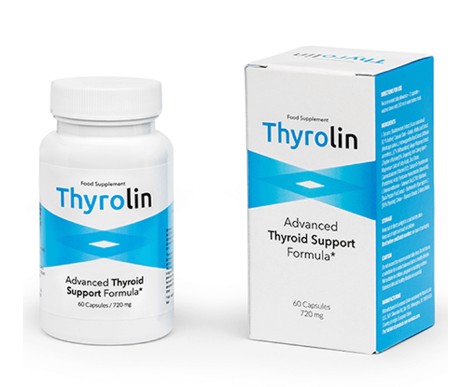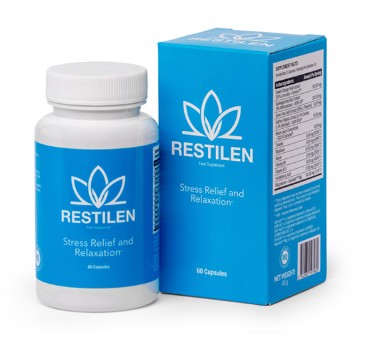Struggling with sleepless nights due to Hashimoto’s thyroiditis? You’re not alone.
This autoimmune condition, the leading cause of hypothyroidism, disrupts thyroid hormone levels, often causing insomnia—difficulty falling asleep, staying asleep, or waking too early.
As NutriGem, your trusted source for natural health insights, I’m excited to share holistic strategies to address Hashimoto’s insomnia, inspired by health experts. Discover the thyroid-sleep connection, actionable solutions, and grab our free PDF checklist: “5 Ways to Improve Sleep with Hashimoto’s” to start sleeping better today!
The Thyroid-Sleep Connection: Why Hashimoto’s keeps you awake
Hashimoto’s thyroiditis triggers hypothyroidism, lowering thyroid hormones (T3, T4) that regulate sleep cycles. This hormonal imbalance disrupts sleep architecture, leading to poor sleep quality and insomnia. Conversely, chronic sleep deprivation can worsen thyroid function, creating a vicious cycle. Symptoms like joint pain, cold intolerance, or depression—common in hypothyroidism—further aggravate Hashimoto’s insomnia. Understanding this bidirectional relationship is key to finding relief.
Root Causes of Hashimoto’s Insomnia
Several factors link Hashimoto’s to insomnia:
- Hormonal Imbalance: Low T3/T4 levels disrupt sleep regulation, reducing sleep quality.
- Inflammation: Autoimmune-driven inflammation in Hashimoto’s affects the brain’s sleep centers.
- Stress: Chronic stress exacerbates thyroid dysfunction and insomnia.
- Nutrient Deficiencies: Selenium and zinc deficiencies, common in Hashimoto’s, impair thyroid and sleep health.
- Secondary Symptoms: Joint pain, cold sensitivity, or depression interfere with restful sleep.
Supporting thyroid health can help. Thyrolin, with 13 natural ingredients like selenium and zinc, supports hormone production and reduces fatigue. (Affiliate link, I only recommend trusted products).

Holistic Solutions for Hashimoto’s Insomnia
To manage Hashimoto’s insomnia, combine medical oversight with lifestyle changes:
- Nutrient-Rich Diet:
- Include selenium (Brazil nuts) and zinc (pumpkin seeds) to support thyroid function.
- Avoid gluten and processed foods to reduce inflammation.
- Stress Management: Practice meditation, yoga, or deep breathing to calm the nervous system.
- Exercise: Moderate activity (e.g., walking) improves sleep and thyroid health.
- Sleep Hygiene:
- Maintain a consistent sleep schedule.
- Keep your bedroom cool, dark, and screen-free.
- Avoid caffeine and heavy meals before bed.
Restilen, with natural adaptogens, reduces stress and promotes calm, easing insomnia. (Affiliate link, I only recommend trusted products).

Mastering sleep Hygiene for Thyroid Health
Effective sleep hygiene is critical for Hashimoto’s insomnia:
- Morning Light Exposure: Boosts circadian rhythm and thyroid hormone production.
- Wind-Down Routine: Read or take a warm bath 1-2 hours before bed.
- Limit Naps: Avoid long naps to preserve nighttime sleep.
- CBT-I (Cognitive Behavioral Therapy for Insomnia): Restructure sleep-disrupting thoughts with a therapist.
Thyrolin supports overall thyroid health, aiding sleep indirectly by reducing fatigue. (Affiliate link, I only recommend trusted products).

Work with your Doctor for Optimal results
Hashimoto’s and insomnia require professional guidance:
- Diagnosis: Confirm hypothyroidism with blood tests (TSH, T3, T4).
- Treatment: Discuss hormone replacement therapy or other medical options.
- Sleep Evaluation: Rule out other causes of insomnia (e.g., sleep apnea) with a specialist.
Combine medical care with holistic strategies for the best outcomes. Download our free checklist to start!
Take Control of Hashimoto’s Insomnia today!
Don’t let Hashimoto’s insomnia steal your rest. By addressing thyroid health, stress, and sleep hygiene, you can reclaim restful nights. Start with these steps:
- Consult your doctor for personalized thyroid treatment.
- Download our free PDF checklist: “5 Ways to Improve Sleep with Hashimoto’s.”
- Support your body with Thyrolin or Restilen for thyroid and stress relief.
Have you tried holistic solutions for Hashimoto’s insomnia? Share your tips in the comments below!
FAQ: Hashimoto’s and Insomnia
Can Hashimoto’s Cause Insomnia?
Yes, Hashimoto’s can cause insomnia by disrupting thyroid hormone levels, which affect sleep cycles. Symptoms like joint pain or depression also interfere. Download our free checklist to manage Hashimoto’s insomnia!
How does Hypothyroidism affect Sleep Quality?

Low thyroid hormones reduce sleep quality, causing insomnia or daytime fatigue. Inflammation and stress worsen the issue. Support thyroid health with Thyrolin
What are the Best Ways to Improve Sleep with Hashimoto’s?

Improve Hashimoto’s insomnia with sleep hygiene, stress reduction, and a nutrient-rich diet. Restilen helps manage stress, a key trigger. Get our free checklist for more tips!
Can Stress Management help Hashimoto’s Insomnia?
Long-Tail Keyword: How to manage Hashimoto’s insomnia naturally
Stress worsens Hashimoto’s and insomnia. Meditation, yoga, or Restilen can calm your nervous system, improving sleep. Download our free checklist to start!
Disclaimer
This article is for informational purposes only and does not constitute medical advice. Hashimoto’s thyroiditis and hypothyroidism require diagnosis and management by a qualified healthcare professional. Consult your doctor before starting supplements like Thyrolin or Restilen or making health changes. Some links are affiliate links, but I only recommend trusted products.
Related Reading
Explore more health insights:
- Optimize your gut health to support thyroid function in Boost Health: Nurture Oral, Gut, Vaginal Microbiomes Naturally.
- Discover personalized nutrition for thyroid health in Eat for Your Genotype: How to Unlock Personalized Nutrition for Each One!.
- Learn how stress affects psoriasis, another autoimmune condition, in Psoriasis Relief: Prof. Humbert’s Guide to Causes, Symptoms, and Holistic Solutions.
2 réponses